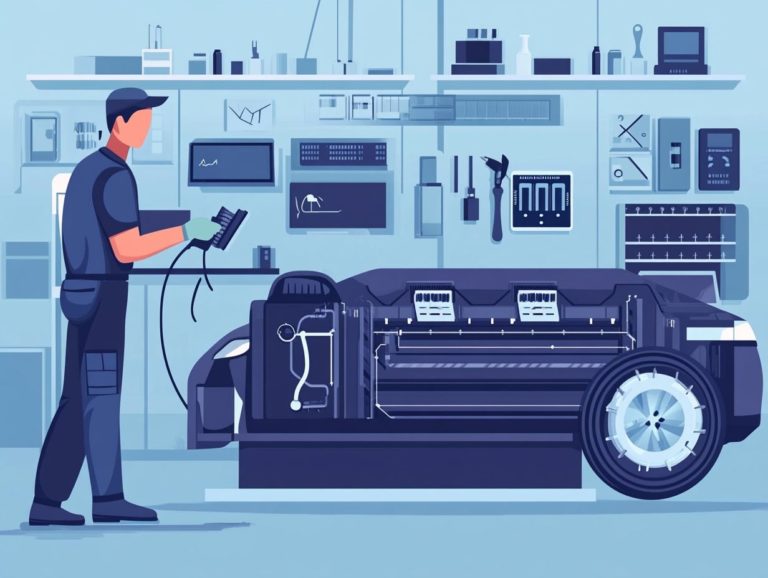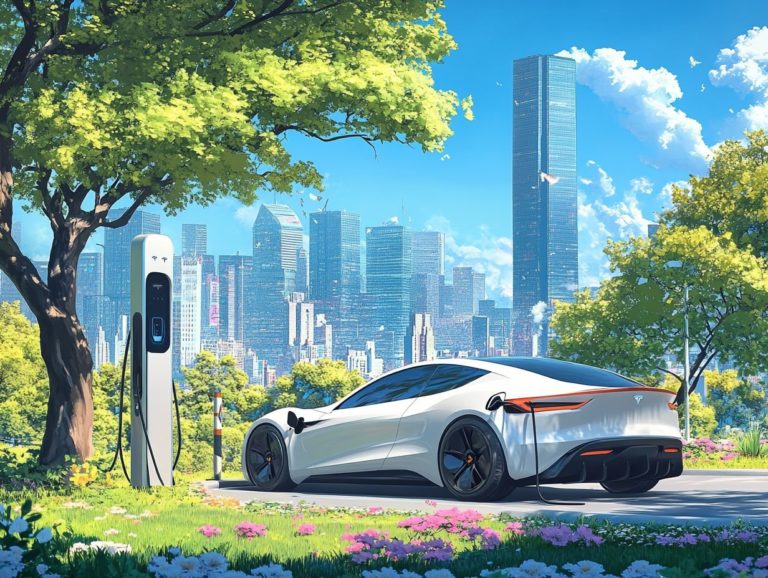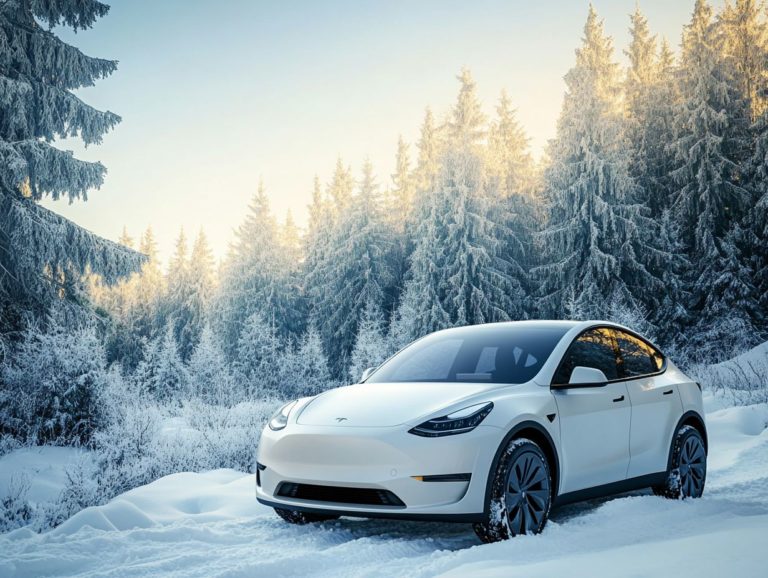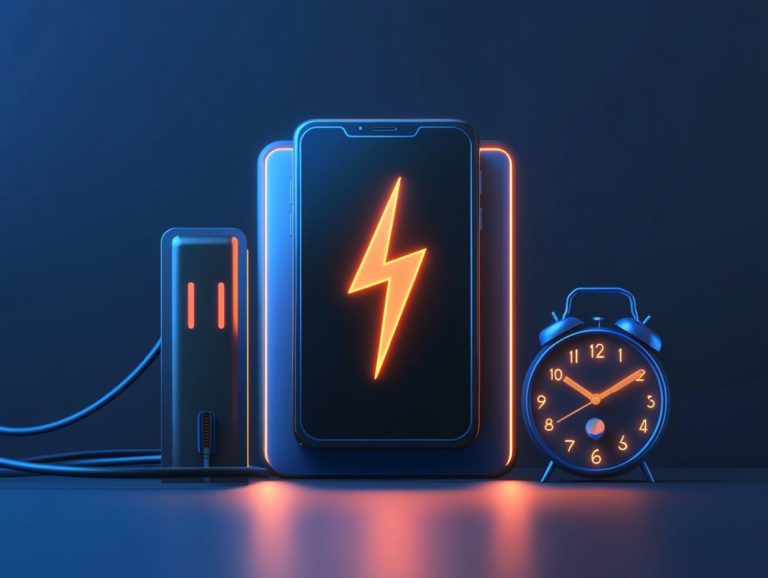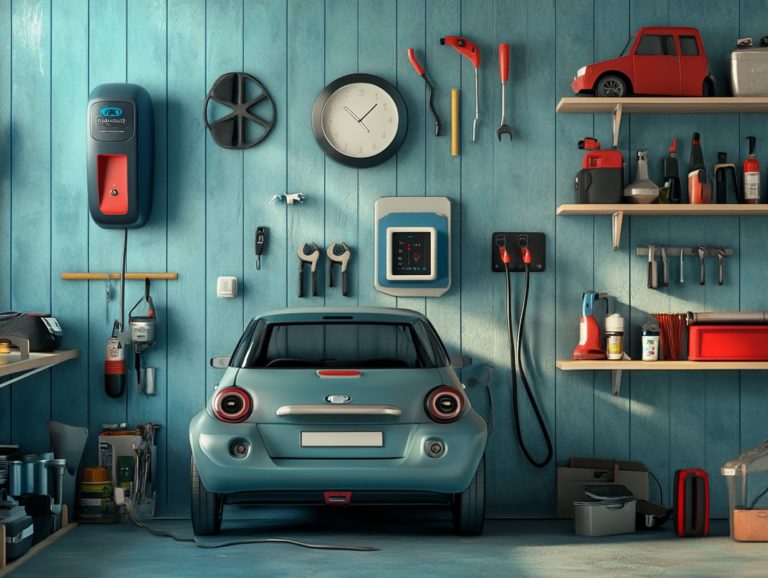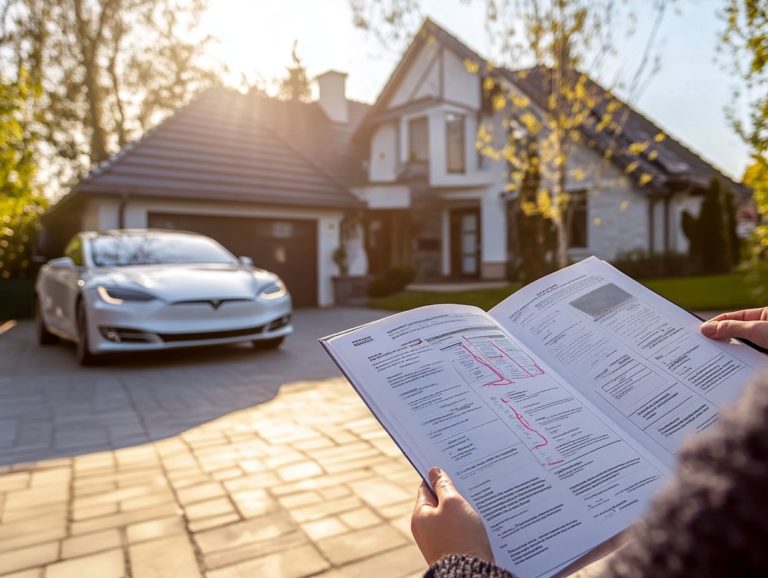what are the different types of electric motors?
Electric motors play a crucial role in powering various devices and systems that define your daily life.
From home appliances to industrial machinery, understanding different types of electric motors like DC, AC, brushless, and stepper motors helps you make informed choices for your projects.
This article explores the types of electric motors, their applications in commercial and residential settings, and essential factors to consider when selecting the right motor for your needs.
Immerse yourself in the captivating world of electric motors and uncover valuable insights!
Contents
Key Takeaways:
- There are various types of electric motors, including DC, AC, brushless, and stepper motors, each with unique features and applications.
- Electric motors are used in many settings, from industrial and commercial to residential applications.
- Choosing the right motor is crucial for performance; consider factors like power requirements, efficiency, and performance for optimal results.
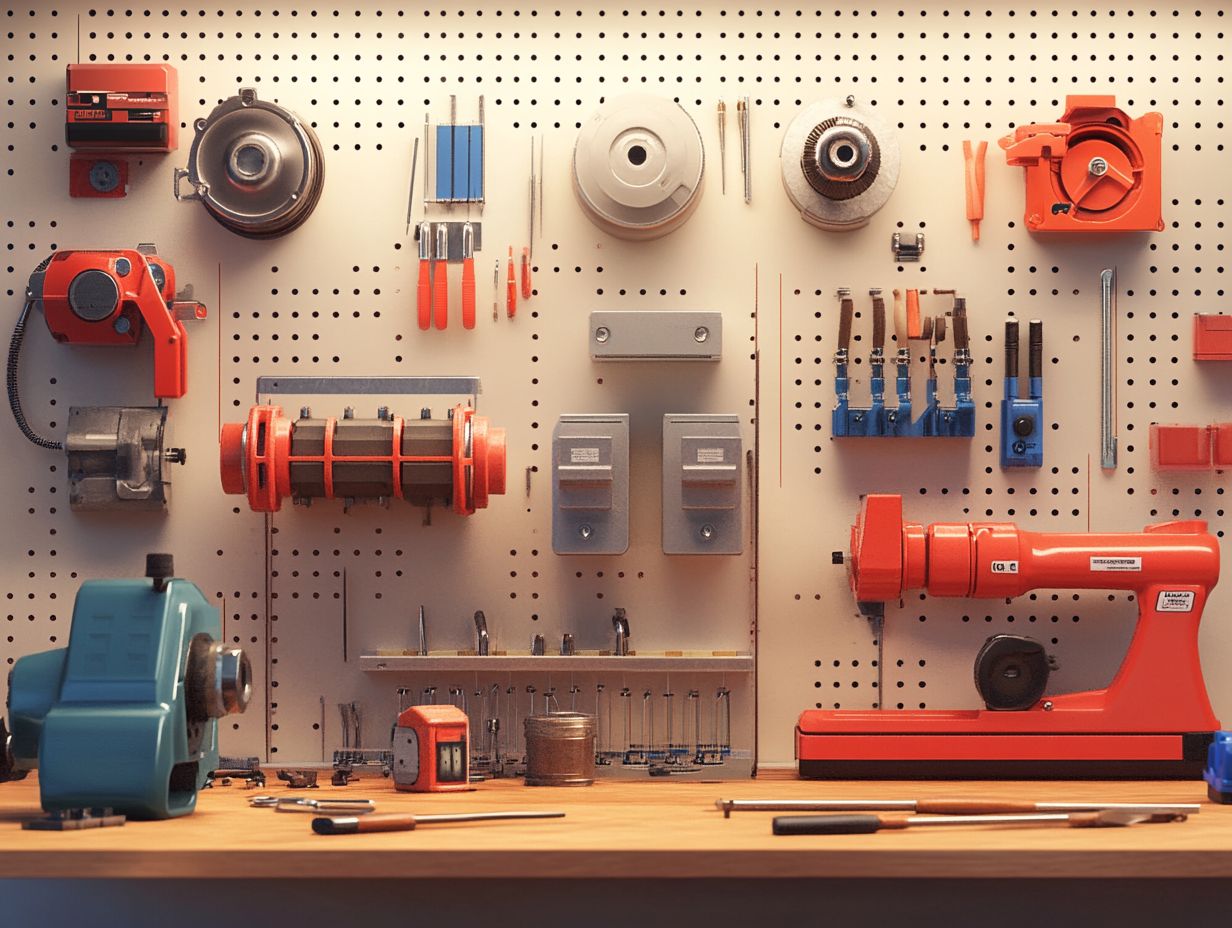
What is an Electric Motor?
An electric motor is a remarkable device that transforms electrical energy into mechanical energy using the principles of electromagnetism.
Drawing on the groundbreaking work of innovators like Nikola Tesla and Michael Faraday, these motors effectively use both alternating current (AC) and direct current (DC) to generate rotational movement, which refers to the turning motion of the motor.
This ability unlocks countless possibilities for various applications in industrial and residential environments.
The design features essential components, including the rotor and stator, meticulously crafted to ensure efficient torque production and peak performance.
Types of Electric Motors
Electric motors are classified into different types based on their construction and operational methods.
You ll encounter direct current (DC) motors and alternating current (AC) motors, each offering distinct characteristics and a range of applications tailored to specific needs.
DC Motors
DC motors are an excellent choice for applications requiring precise speed control and high torque production, using electrical currents to create rotational motion through brushed or brushless designs.
These motors convert direct current into mechanical energy by utilizing the interplay between magnetic fields and electric currents. One standout feature of DC motors is their ability to deliver instantaneous torque and speed adjustments, making them essential in sectors like robotics, electric vehicles, and industrial machinery.
Brushed designs rely on physical brushes to transfer current, making them simpler and more cost-effective, but they may experience wear and decreased efficiency over time. Brushless motors eliminate the need for brushes, resulting in higher efficiency, longer lifespan, and reduced maintenance significant advantages in applications where reliability is critical.
AC Motors
AC motors, including induction and synchronous types, are ideal solutions for industrial applications, effectively converting electrical energy into mechanical energy with impressive efficiency.
Their rotor and stator design ensures optimal torque application, making them critical in various sectors.
These motors power everything from conveyor belts to heavy machinery. Induction motors operate based on the principle of electromagnetic induction, featuring a straightforward construction that enhances durability and reliability.
Synchronous motors maintain a constant speed by synchronizing with the supply frequency, making them perfect for precision applications. Both motor types have distinct advantages, such as low maintenance costs and high efficiency vital elements for optimizing productivity in any industrial setting.
Choosing the right motor is essential. Dive into the world of electric motors today and find the perfect one for your needs!
Brushless Motors
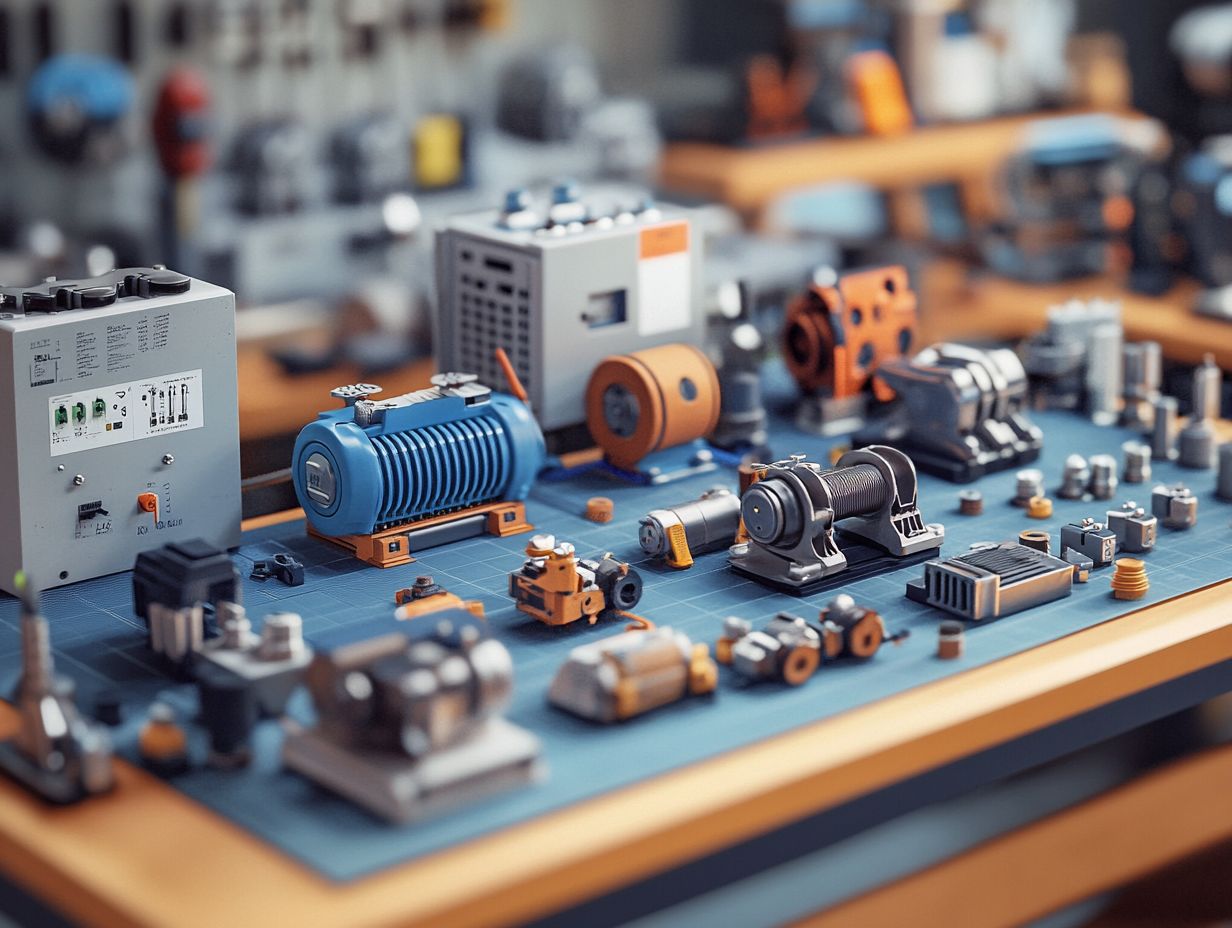
Brushless motors signify a remarkable leap in electric motor technology. They boast enhanced efficiency control and lower maintenance compared to traditional brushed motors. This makes them perfectly suited for applications that demand high reliability.
Their innovative design eliminates brushes, reducing wear and tear and extending the motor’s lifespan. You will appreciate how they generate less heat during operation, showcasing impressive efficiency that leads to energy savings for both manufacturers and consumers.
These motors find their place across a diverse range of industries, including automotive, aerospace, and consumer electronics, where precision and durability are crucial.
Unlike brushed motors, which often face limitations due to brush wear and electrical noise, brushless systems operate with quiet efficiency. They are the go-to choice for high-performance applications that require consistent power and speed.
Stepper Motors
Stepper motors are carefully designed for precision control. They allow you to adjust rotation speeds and apply mechanical forces with remarkable accuracy in various automation systems.
These motors take precise steps, enabling them to segment a full rotation into numerous micro-steps. This design achieves exceptional accuracy in positioning.
By energizing specific coils in a carefully sequenced manner, they generate magnetic fields that rotate the rotor in controlled increments. One standout benefit is their ability to maintain high torque at lower speeds. Torque is the force that makes things turn, making these motors invaluable in situations that require both reliability and smooth motion.
You will find typical applications ranging from 3D printers to CNC machines and robotics. Here, precise control over movements is essential for achieving optimal performance.
Applications of Electric Motors
Electric motors are essential in a wide array of applications, from industrial machinery to residential appliances. Their versatility and efficiency in converting electrical energy into mechanical energy truly set them apart, making them critical in both commercial and domestic settings.
Industrial and Commercial Uses
In industrial and commercial settings, electric motors are critical for driving machinery. They provide high torque and efficient operation that translate directly into substantial operational advantages.
They power various systems think conveyor belts, pumps, and fans ensuring everything runs smoothly and productivity soars.
For example, in manufacturing plants, they enable assembly lines to operate seamlessly. In HVAC systems, they regulate airflow and maintain precise temperature controls.
Their efficiency minimizes energy consumption and cuts down on maintenance costs, contributing significantly to sustainability efforts.
The torque they generate is vital for overcoming resistance, giving power to machines to tackle demanding tasks without sacrificing reliability.
Electric motors are the backbone of modern industry, powering innovation at every turn!
Residential Uses
In residential settings, you will find electric motors at the heart of appliances like refrigerators, washing machines, and HVAC systems. They contribute to energy efficiency and enhance your convenience.
These motors are essential for transforming electrical energy into mechanical energy, powering crucial functions that simplify your household tasks. Take a washing machine, for example: the motor drives the drum to agitate clothes, ensuring a thorough clean while being mindful of water usage.
The significance of efficiency here is paramount. Energy-efficient electric motors, especially those with the ability to change speed, can dramatically lower your electricity bills and reduce your carbon footprint.
By enhancing the functionality of your devices, these motors elevate your daily life, making mundane chores feel less burdensome. They allow you to enjoy comfort without breaking the bank on utility expenses.
For more information about electric motors and their applications, explore our resources!
Key Factors to Consider When Choosing an Electric Motor
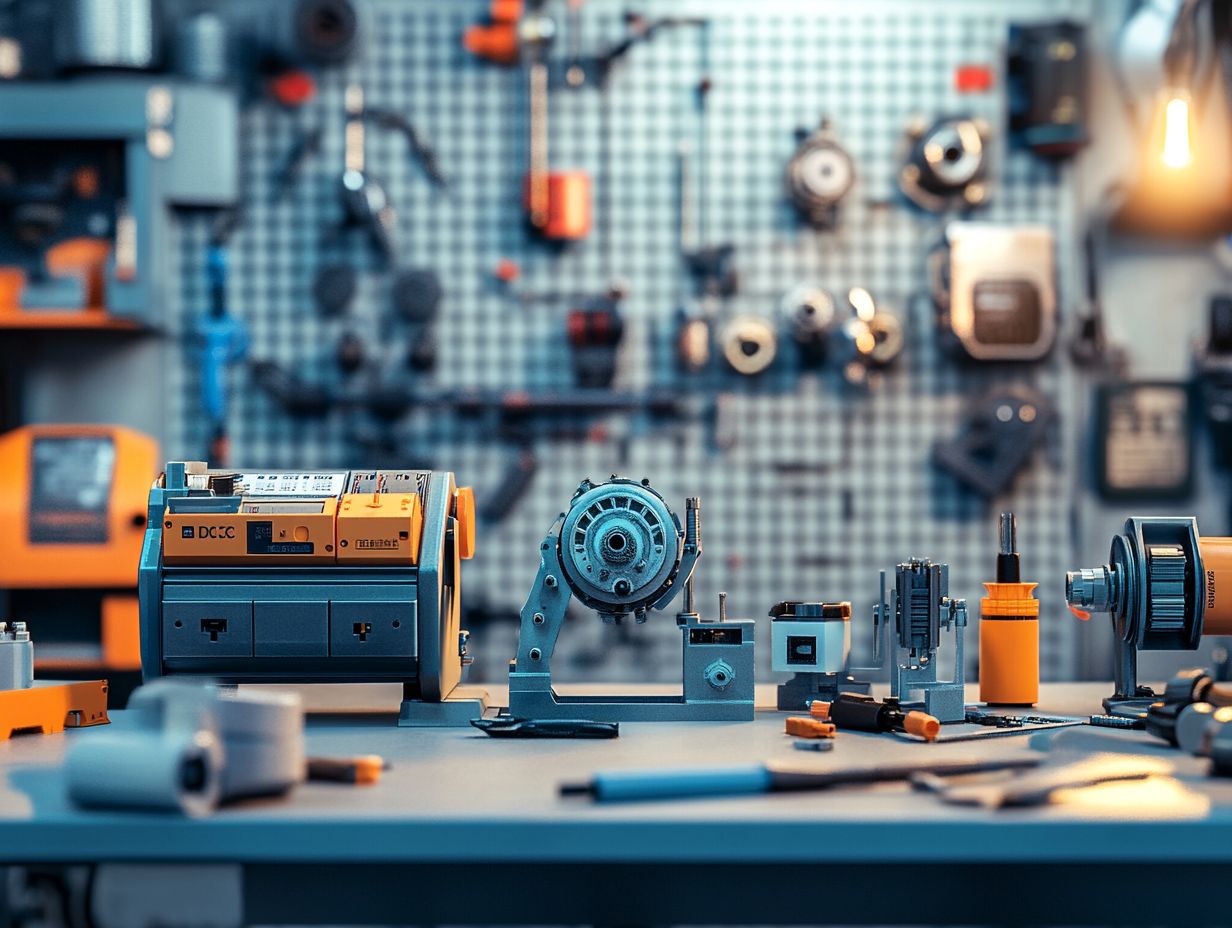
Selecting the right electric motor requires understanding several crucial factors. These include power requirements, efficiency, and voltage specifications.
Each of these elements significantly impacts the motor’s performance and suitability for various applications. By carefully considering them, you can ensure that your choice aligns with your specific needs.
Power Requirements
Understanding power requirements is essential for selecting the right electric motor. These dictate the horsepower rating and voltage needed for optimal operation across different applications.
Choosing the appropriate electric motor involves more than just matching a brand; it requires grasping how horsepower and voltage affect performance. This careful evaluation ensures that the motor can handle the intended load effectively, ultimately extending its lifespan and enhancing efficiency.
If you choose a motor with insufficient horsepower, it may struggle under heavier loads, leading to overheating and early failure. Likewise, ensuring the correct voltage is vital to prevent issues like overvoltage, which can jeopardize the motor s functionality and safety.
Accurately gathering these specifications is crucial for aligning your motor selection with operational demands. This paves the way for optimal performance outcomes.
Efficiency and Performance
Efficiency and performance are vital when evaluating electric motors. They directly influence your operational costs and energy recovery, whether in industrial settings or residential environments.
In a time where energy conservation is more important than ever, understanding how efficient electric motors can save you money is crucial! Grasping the efficiency of electric motors can lead to substantial cost savings and a smaller environmental footprint.
When assessing these motors, consider factors like load variations and operating conditions, as they play a crucial role in determining effectiveness.
To optimize motor efficiency, consider employing techniques such as:
- Using variable frequency drives
- Selecting the right motor sizes
- Implementing regular maintenance schedules
Energy recovery technologies, such as regenerative braking systems, can capture and repurpose wasted energy. This further elevates overall system efficiency and supports sustainable practices across various industries.
Preguntas Frecuentes
Cu les son los diferentes tipos de motores el ctricos?
Hay varios tipos de motores el ctricos, cada uno con caracter sticas nicas y aplicaciones. Estos incluyen motores de corriente alterna (AC), motores de corriente continua (DC), motores con escobillas, motores sin escobillas, motores paso a paso y motores servo.
Qu es un motor de corriente alterna?
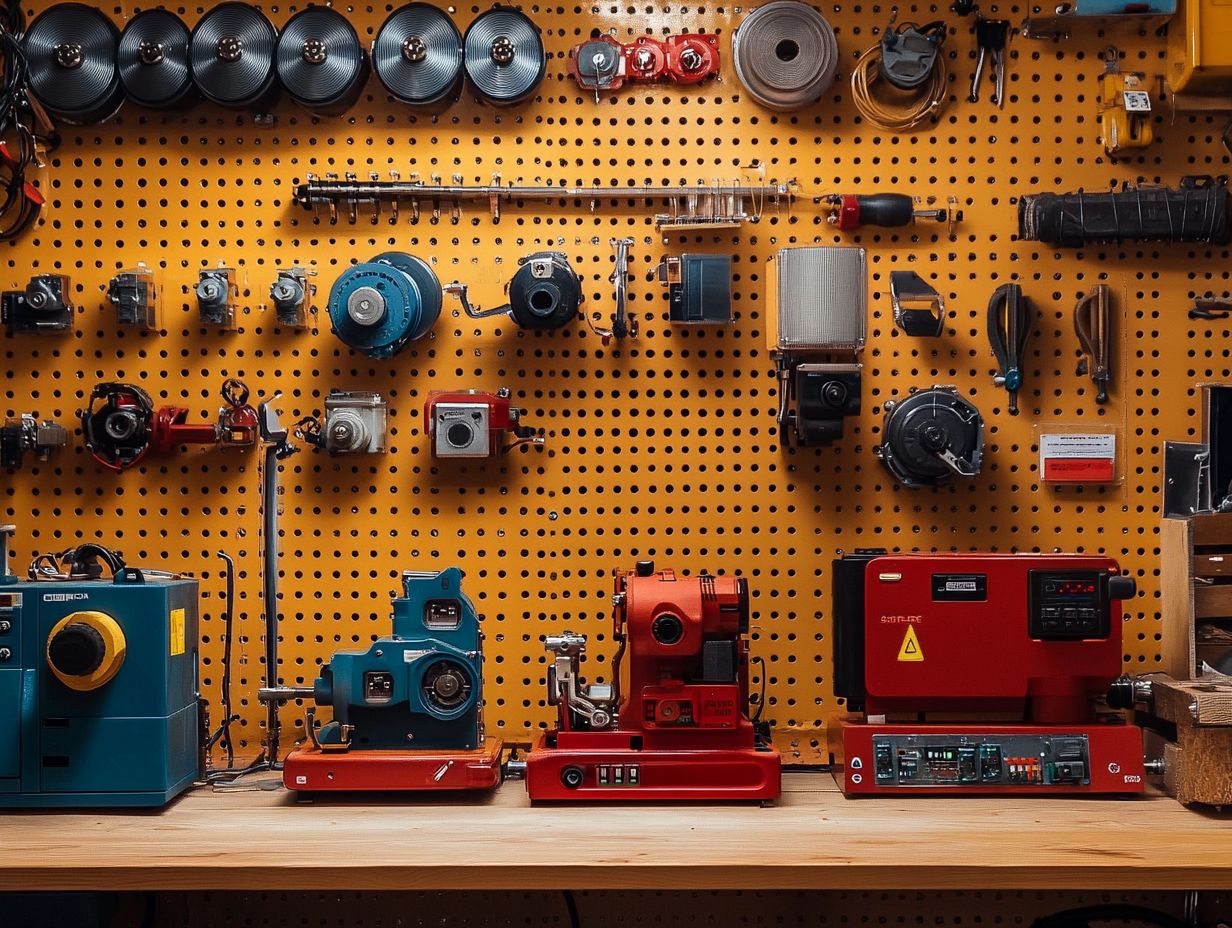
Un motor de corriente alterna, conocido como motor AC, es un tipo de motor el ctrico que funciona con corriente alterna. Se utiliza com nmente en electrodom sticos, equipos industriales y veh culos el ctricos.
Qu es un motor de corriente continua?
Un motor de corriente continua, o motor DC, es un tipo de motor el ctrico que funciona con corriente continua. Se usa a menudo en dispositivos electr nicos peque os, como juguetes y herramientas el ctricas, as como en aplicaciones m s grandes como veh culos el ctricos y equipos industriales.
Cu l es la diferencia entre un motor con escobillas y un motor sin escobillas?
Los motores con escobillas tienen componentes que hacen contacto con la parte rotativa del motor para suministrar energ a. Los motores sin escobillas, en cambio, utilizan conmutaci n electr nica para entregar energ a, eliminando la necesidad de escobillas f sicas. Generalmente, son m s eficientes y requieren menos mantenimiento que los motores con escobillas.
Qu es un motor paso a paso?
Un motor paso a paso se mueve en peque os pasos o incrementos precisos. Se utiliza com nmente en aplicaciones que requieren control preciso, como la rob tica, impresoras 3D y m quinas CNC.
Qu es un motor servo?
Un motor servo es un tipo de motor el ctrico. Utiliza un sistema de control que responde a su posici n para posicionar con precisi n el eje de salida.
Los motores servo son fascinantes! Se usan com nmente en aplicaciones que requieren movimiento preciso y continuo, como brazos rob ticos, c maras y equipos industriales.

